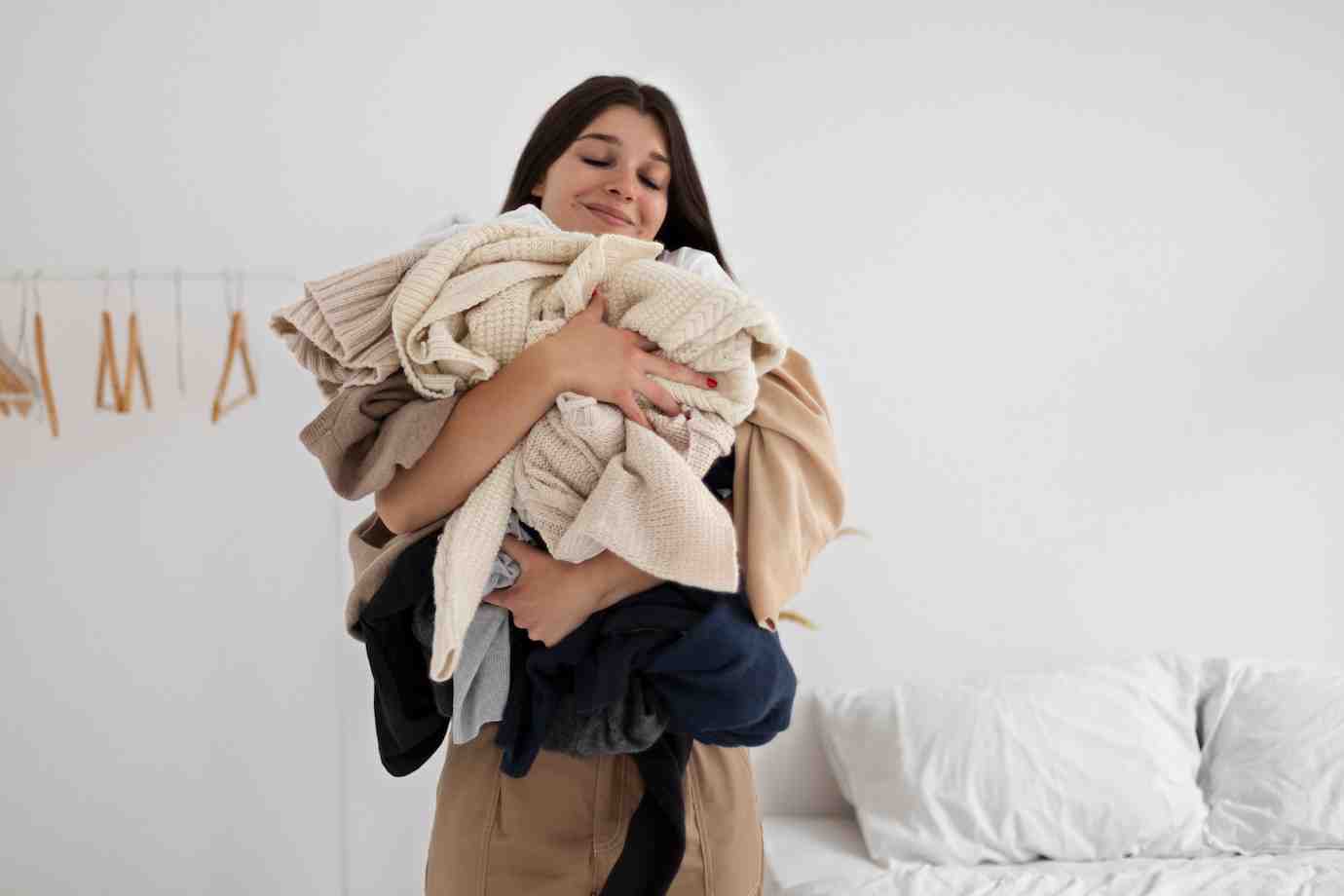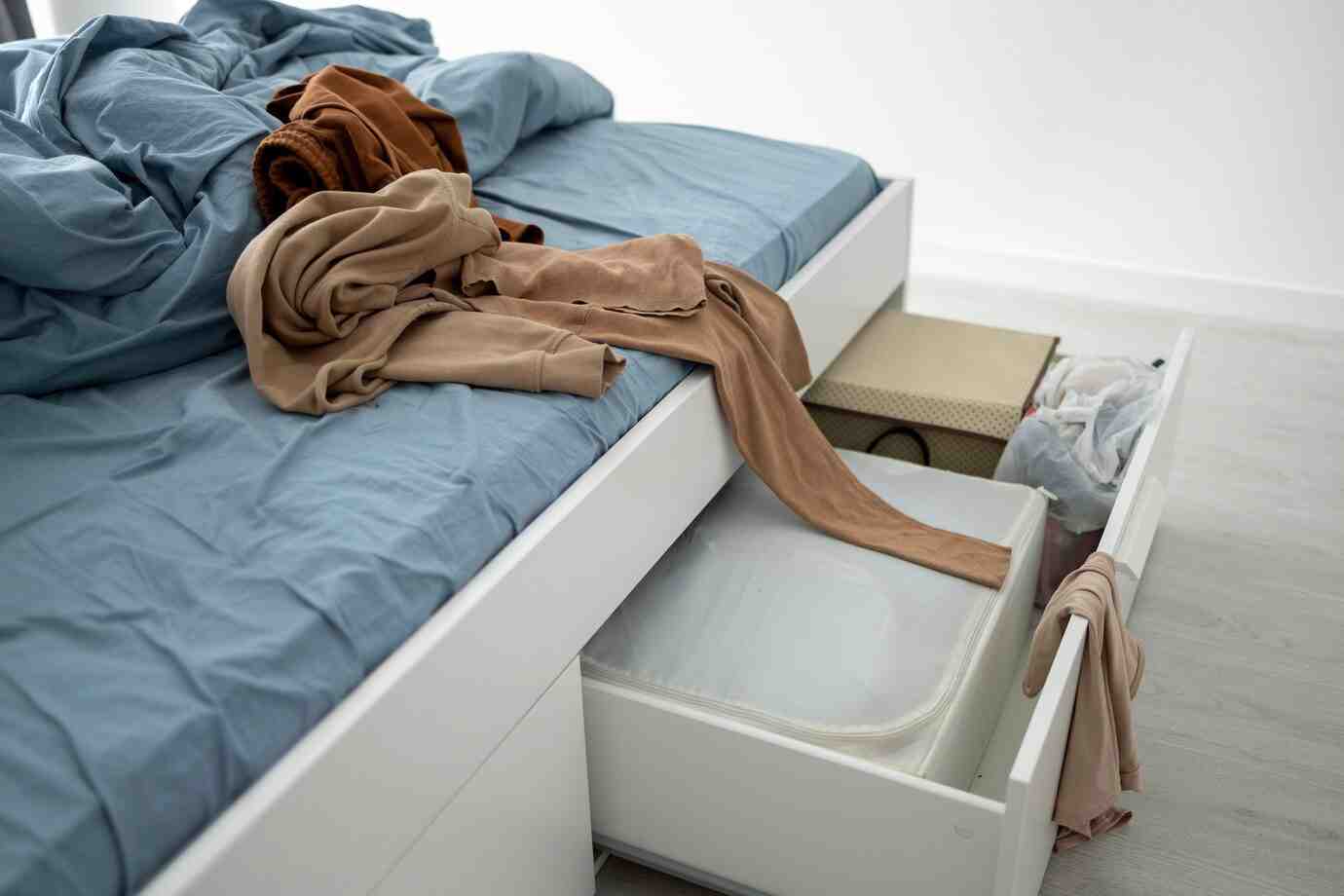
Decluttering Guilt: Overcoming Emotional Barriers
Have you ever stood frozen in front of a crammed wardrobe or an overflowing drawer, feeling a pang of guilt at the thought of letting something go? You’re not alone. Decluttering guilt is a real and powerful emotion that can turn a simple tidying task into an emotional minefield.
We often attach memories, identity, and even responsibility to our belongings, making it incredibly hard to part with them. But here’s the good news — it’s possible to declutter without the heavy emotional baggage. In this article, you’ll discover practical strategies for emotional decluttering, how to cultivate a minimalist mindset, and how to finally overcome the invisible barriers that keep you stuck.
Ready to lighten your home and your heart? Let’s dive in.
Why Decluttering Guilt Happens
The Emotional Ties to ‘Things’

Our possessions are often more than just objects; they’re memory-keepers. That holiday souvenir from 10 years ago? It reminds you of sun-soaked days with loved ones. The jumper your grandmother knitted? It feels like a warm hug you can still hold onto.
When we attempt to declutter, it’s not just the item we’re facing — it’s the emotions tied to it. Guilt arises because:
- We feel ungrateful for letting go of gifts.
- We fear loss of memory if the item disappears.
- We associate items with identity, believing we’ll lose part of ourselves.
- We dread waste, feeling guilty for being wasteful or irresponsible.
Recognising why you feel guilty is the first step toward overcoming it.
Emotional Decluttering: Facing the Feelings, Not the Objects
Acknowledge the Guilt
Suppressing emotions often makes them stronger. Instead, pause and acknowledge the guilt. You might say to yourself, “I feel guilty because I’m letting go of something my friend gave me.” Naming the feeling makes it less overwhelming.
Keep a small notebook handy while decluttering. Jot down emotional reactions as they come — it helps externalise and process them.
Separate the Memory from the Item
Here’s the truth: Memories live within you, not in your things. An object may trigger a memory, but it doesn’t contain it. Try this:
- Take a photo of sentimental items before parting with them.
- Write a brief story about why it was important.
- Store these digitally if you like minimal physical clutter.
By capturing the essence, you honour the memory without needing to physically cling to the object.
Practical Strategies to Beat Decluttering Guilt
1. The KonMari “Thank You” Ritual
Inspired by Marie Kondo’s KonMari Method, thanking each item for its service makes letting go easier.
When you hold an object and say, “Thank you for bringing me joy,” you acknowledge its role in your life, no matter how small. This small act turns decluttering into a gratitude practice instead of an emotional battlefield.
2. Set a Clear Intention
Before you begin, define your ‘why.’ Ask yourself:
- Am I creating space for a calmer life?
- Do I want a home that reflects my current values?
Setting an intention gives you emotional armour when guilt sneaks in.
3. Use the “Joy Check” Method
Marie Kondo’s famous question — “Does it spark joy?” — isn’t just about happiness; it’s about alignment.
If an item no longer serves your present life or future aspirations, it’s okay to let it go. Guilt thrives on confusion. Clear, intentional choices diminish its power.
How to Reframe the Way You View Letting Go
Letting Go is Not Betrayal
Many people feel they’re betraying loved ones by discarding gifts or heirlooms. It’s important to remember: you are not rejecting the person, just the item.
Would your late aunt really want you burdened by a collection of dishes you never use? Probably not. True honour lies in cherishing memories, not objects.
Your Home is a Living Space, Not a Storage Unit
Imagine your home as a beautiful, breathing space — not a museum for the past. A minimalist mindset treats space as valuable, not something to be crammed full. Each item should add value to your current life, not just exist out of obligation.
Dealing with Specific Emotional Hurdles
The “What If I Need It Later?” Anxiety
Ah, the classic! Here’s the thing:
- If you haven’t used it in a year, chances are, you won’t.
- If you need it, you can often borrow, rent, or easily replace it.
Minimalists embrace trust — trusting themselves to handle future needs as they arise, without stockpiling “just in case” clutter.
Family Heirlooms
When it comes to inherited items, the emotional stakes feel higher. Here’s how to navigate them:
- Select just one or two meaningful pieces instead of keeping everything.
- Repurpose: Turn old fabrics into a quilt or frame a small piece of jewellery as art.
- Pass it on: If you don’t love it, someone else in the family might.
Gifts You Don’t Love
The guilt here is potent because it feels personal. Remember: The purpose of a gift is to be received, not kept forever. The joy was in the giving and receiving. Once that’s complete, your obligation ends.
Mindset Shifts for Lasting Emotional Freedom

Focus on What You’re Gaining
Rather than mourning what you’re discarding, celebrate what you’re gaining:
- More space for calm and creativity
- Clarity to focus on what truly matters
- Freedom from emotional burdens
Practice Self-Compassion
Decluttering isn’t just an organisational task; it’s emotional work. Some sessions will be easy; others will bring tears. That’s normal.
Speak to yourself kindly: “I’m doing this to support my future self.”
Remember: You’re Not Alone
Everyone struggles with decluttering guilt. Even professional organisers admit to wrestling with sentimental items. You’re part of a larger human experience — and that connection is oddly comforting, isn’t it?
Bonus Tips: Lighten the Emotional Load Even Further
- Start small: Begin with one drawer, one shelf, or one category (like shoes).
- Use a “Maybe Box”: Place unsure items in a box with a date. If you haven’t retrieved them in six months, you’re ready to part ways.
- Visualise your ideal space: Cut out magazine pictures or create a Pinterest board. Keeping the end goal in mind helps motivate emotional decisions.
Conclusion: Embrace Freedom & Declutter Without Guilt

Decluttering isn’t just about making your home look nice — it’s about making space for the life you want to live. Overcoming decluttering guilt is deeply emotional, but it’s also deeply freeing.
When you acknowledge your feelings, respect the memories, and move forward with gratitude, you build a home that supports, rather than suffocates, you. Emotional decluttering is not an overnight fix, but each small step you take leads to a lighter, more joyful life.
Ready to let go and reclaim your space? Start today — and share your journey in the comments below! We’d love to hear what emotional hurdles you’ve overcome and how you embrace a minimalist mindset.


